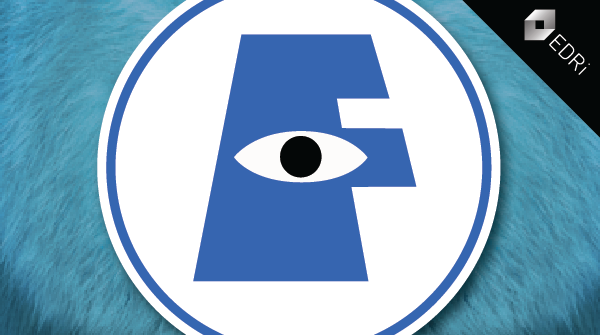Filters Incorporated
On 26 March 2019, the European Parliament (EP) adopted the new copyright Directive. The music industry and collecting societies celebrated it as a victory for authors and creators, despite actual authors (along with civil society groups) being worried about the outcome.
Article 17 of the Directive (referred as Article 13 in the previous draft text) includes a change of platforms’ responsibility that will lead to the implementation of upload filters on a vast number of internet platforms. In effect, Article 17 represents a threat to our fundamental right to freedom of expression.
We tried hard to stop the legalisation of the first EU internet filter. Read below a summary of what happened.

It all started in 2002
EDRi has been involved in copyright discussions since the beginning of our network’s existence. We’ve promoted a positive agenda aimed at fixing the main problems within the existing framework, and supported a copyright reform that included a request for authors and artists to receive fair remuneration for their work. We published handbooks, series of blogposts, responded to public consultations, spoke in numerous public events, and met with all key policy makers in Brussels and at national level. We participated in different joint actions and were involved in the inception and development of SaveYourInternet.eu along with Copyright for Creativity (C4C).
Civic engagement vs industry lobby
During the debates, the individuals’ and civil society groups’ participation was crucial in order to balance the massive lobby efforts by industries. In July 2018, thanks to the pressure of thousands of people calling their Members of the European Parliament (MEPs), the European Parliament rejected the mandate to proceed with a flawed proposal. This gave us hope that citizens’ voice can be heard, if we shout loud enough.
During the Copyright Action Week in March 2019, ahead of the final vote on the Directive in the European Parliament, a team of 17 people from all across Europe made it all the way to Brussels and Strasbourg. They all parked their studies or jobs for a few days in order to meet their elected representatives and have a final push to delete upload filters from the copyright Directive. We were impressed with their dedication, and their thorough knowledge of the consequences Article 13 could have on the internet. More, hundreds of thousands of people went on the streets in Europe to protest against upload filters.
The latest actions taken by all of those opposing internet filters were not in vain. In the vote adopting the Directive on 26 March, 55 MEPs who previously supported Article 17 (former Article 13) in September 2018, changed their position and were willing to delete it from the final text of the Directive. The deletion could have happened through an amendment proposed by several MEPs. In order for this amendment to be adopted and Article 17 deleted, a vote on whether the text should be first opened to amendments took place during the March 2019 plenary.
The vote: Blue pill, or red pill?
On 26 March, the possibility to have a discussion on the amendments to remove Articles 11 and 13 (15 and 17 in the final text) was voted down with a difference of five votes. Thirteen MEPs claimed that they had wished to open the debate to remove both Articles, but were confused by the previous change of votes order and the obvious lack of clarity this procedural vote was introduced with, and failed to vote “yes”. The vote has been corrected only in the records, but it will not affect the actual results of the vote. After this “mistake” that made it impossible for MEPs to vote on deleting Article 13/17, the text of the Directive (including Article 13/17) was adopted with 338 votes in favor, 283 against, 36 abstentions and 93 MEPs not attending the session.
Despite some policy-makers repeatedly stating that the Directive will not lead into upload filters, it turned out it was all about filters. The day after the Directive was adopted, France hurried to declare that it will ensure that “content recognition technologies” will be a key aspect in the upcoming laws implementing the Directive.
With the adoption of Article 17 as part of the Copyright directive text, the European Union is setting a terrible precedent for the rest of the world, encouraging the implementation of upload filters. Initially under the pretext of copyright infringement, filters are already being discussed also in the framework of online “terrorist content”.
Next steps: EU Council and implementation
The final vote in the Council of the European Union, where EU Member States are represented, is scheduled for 15 April. This is traditionally a merely procedural vote – after all, the Council already agreed, before the European Parliament’s final vote, to the text on which they will be voting. However, this is technically the last chance to get rid of the upload filters. If the Member States currently opposing the ”censorship machine” (Finland, Luxembourg, Poland, Netherlands, Italy and perhaps Sweden) remain on the side of their citizens, the only beam of hope would be that a country representing around 9,5% of the population of the whole EU rejects the text. Out of those countries (Germany, France, Spain), the only realistic candidate is Germany. Will the German government respect the coalition agreement which prohibits them from implementing upload filters? Will other EU countries stand up for the citizens, taking into consideration the upcoming European Parliament (and some national) elections? We’ll find out soon.
In the case of the copyright Directive becoming law, civil rights groups are set to reject upload filters in the national implementation phase. Planned actions include potential referrals to the Court of Justice of the European Union (CJEU).

Read more:
Censorship machine takes over EU’s internet (26.03.2019) https://edri.org/censorship-machine-takes-over-eu-internet/
Copyright reform: Document pool
https://edri.org/copyright-reform-document-pool/
(Contribution by Diego Naranjo, EDRi)


